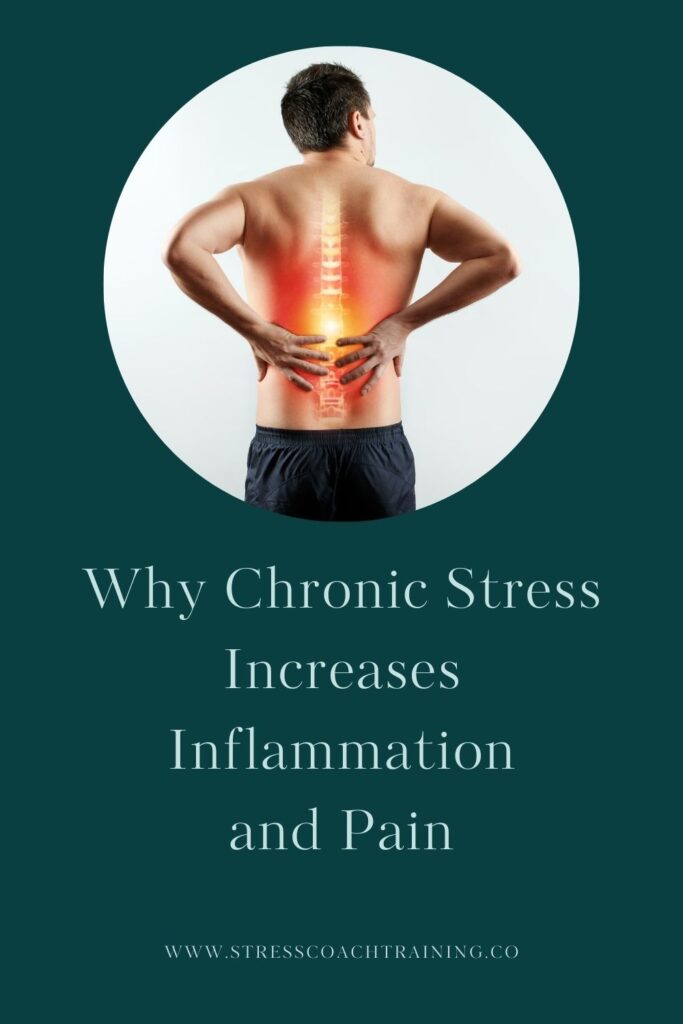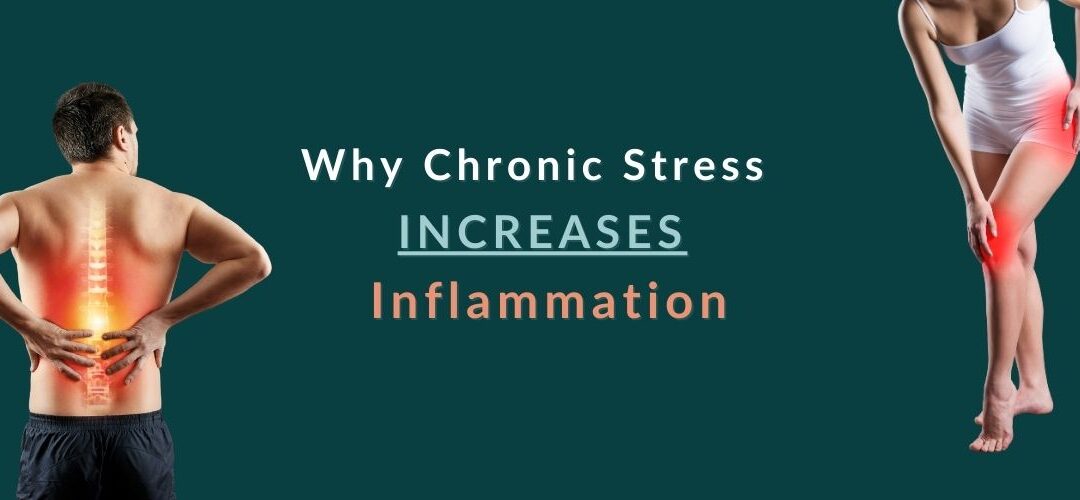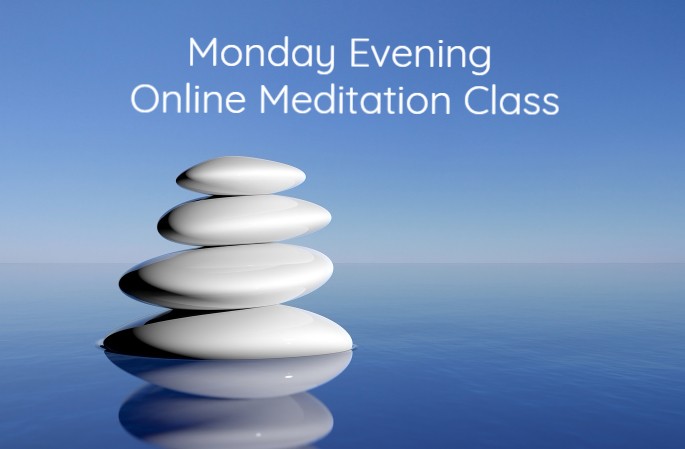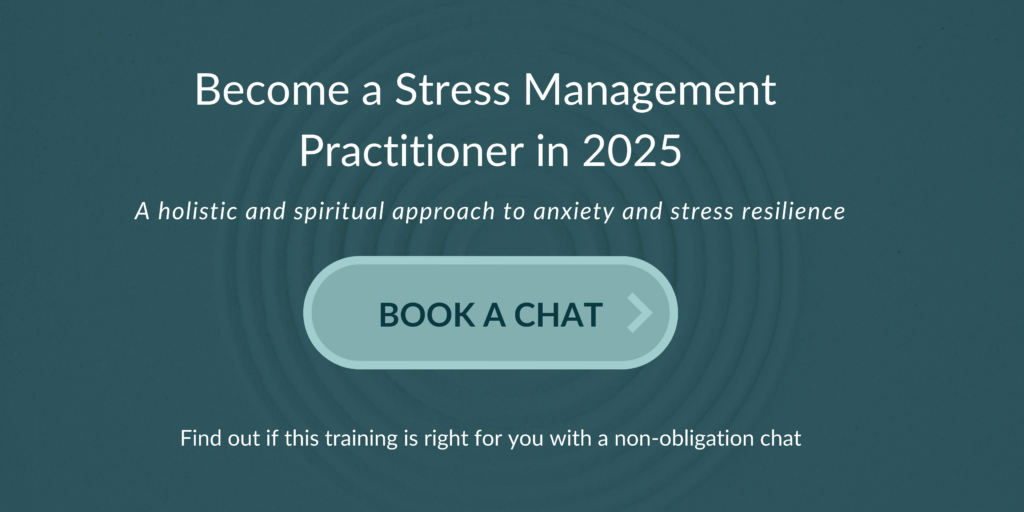Why Chronic Stress Increases Inflammation?
Learn why chronic stress and long-term stress increases inflammation and pain. Why chronic stress is a huge contributing factor to dis-ease and many diseases today?
4 main approaches to begin reducing your stress levels and inflammatory levels today.
Stress And Chronic Stress
Stress is basically a perceived threat of survival caused by a physical, mental or environmental stressor. Which triggers a fight, flight or freeze response to adapt (survive) to that threat.
During a stressful situation our brain triggers a release of different hormonal, neurochemical and neurotransmitters through the activation of the Sympathetic Nervous System and the hypothalamic-pituitary-adrenal axis.
Stress And Cortisol
This is why we experience surges of stress hormones such as adrenalin, cortisol and catecholamines which help trigger physiological responses to deal most effectively with the threat.
That is why during the stress response we experience for example increased oxygen consumption, increased heart rate and improved blood flow, more alertness and focus, rapid breathing, the ability to achieve greater physical endurance and emergency tasks. All physical changes which help us adapt mentally, emotionally and physically to that potential threat.
In many ways our body is designed to restore homeostasis after periods of occasional emergency short term stress. But it is not designed to be in the state of dis-ease that comes from long term stress.
As long-term chronic stress increases inflammation and reduces the immune system.
Chronic stress happens when we are in a chronic state of low-level stress or anxiety where our body in many ways forgets to switch of, that is why so many people today struggle to relax, find it difficult to be still and quieten the mind.
Most people today are addicted to distractions or stimulation because they are suffering from some level of long-term or chronic stress.

Why Chronic Stress Increases Inflammation
Chronic stress increases inflammation because the body becomes constantly in a state of fight or flight, constantly pushing it’s reserves and forgets how to switch off and relax. The body then struggles balancing certain hormones like cortisol.
For example short bursts of cortisol suppresses inflammation while chronic long-term stress increases inflammation.
Because repeated activation of the HPA axis can cause high cortisol levels and eventually the opposite affect which can lead to things like diabetes, muscle weakness, lower immune system, sleep and weight issues, especially things like belly fat and chronic inflammation.
That is why in the modern world where we have so many external demands, exposed to so much mental, emotional, and environmental stressors the body can be in a constant state of extreme adaptation. And eventually fall into a state of dis-ease and disharmony leading to disease.
Why Stress Increases Inflammation And Is Main Cause Of Chronic Disease
If the person is already suffering from any sort of inflammation which most people do, this begins to dramatically increase and become a much bigger problem.
That is why during periods of anxiety, stress, grief or trauma chronic health conditions and certain symptoms increase.
And main reason those already chronically ill or trying to manage their pain need to be educated how much stress increases inflammation. In-fact long-term and chronic stress can be one of the biggest causes of many modern diseases.
4 Ways To Help Reduce Stress And Inflammation
Top tips to managing and reducing stress that increases inflammation and disease
Stress Education:
Understanding what stress is and what is not, is one of the most important aspects to learning how to reduce and manage stress. Even today when chronic stress is an epidemic there is a lot of misinformation around stress. Many people who suffer from long-term stress believe they are not stressed or pretend they don’t suffer from stress because they associate it with weakness.
When the reality is every single person suffers from some sort of stress, we all suffer from eustress and distress. It is part of our survival response and a human being.
Understand Inflammation:
Understanding the basics of what causes inflammation can really help us manage the inflammatory response better. Although we know emotional and mental stress increases inflammation. It is easy to forget that things like toxins and stimulants increase inflammation and are actual stressors on the body.
Things like bacteria, mould, fungi, heavy metals, processed foods, sugar and artificial sweeteners, toxins are all stressors on the body. Even things like temperature and weather changes can be a physiological stressor the more you can manage your inflammation more healthy, the more you can control it.
Reducing Stress Levels And Stimulants:
Learning how to manage stress levels, reducing stressors in your life can help manage and reduce inflammation. The best ways to generally reduce stress levels and to eliminate chronic stress is learning how to relax and be in the moment. Relaxation Therapy involves a variety of different techniques that help encourage the body into the relaxed response which helps switch off the chronic stress cycle, chronic pain and inflammation cycle.
Increasing Cushioning And Protectors:
Increasing your protectors and using forms of cushioning in your day to day life, help us become more resilient to every day anxiety and stress. They help increase those endorphins and generally make life more enjoyable and easier. Examples of stress protectors are meditation, relaxation, essential oil bath, massage, good quality sleep, time out, a walk, weekend away.
Examples of protectors against inflammation include hydration, soothing herbal teas, clean eating, getting outside for some of the sunshine vitamin, relaxing hobbies, relaxing book, funny film, body scanning, meditation, healing.







